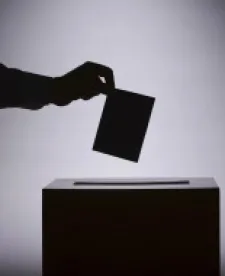Tomorrow millions of employees around the nation will head to the polls to vote in the general election. No matter who wins, employers should make sure they are aware of the applicable voting leave and coercion laws to ensure that they don’t lose.
Approximately two-thirds of the states have voting leave laws that require employers to provide their employees with sufficient time during the workday to vote. And many states (and Federal law) also prohibit employers from coercing or intimidating employees into voting or not voting for a particular candidate or regarding a ballot initiative. New York is no exception.
Specifically, New York employers must provide employees with up to two hours of paid time off to vote where the employee (i) does not have four consecutive non-working hours between the opening or closing of the polls and the beginning or end of his or her shift; and (2) otherwise does not have sufficient time to vote during those non-working hours. Although employees are required to request this leave to vote from their employers at least two days before the election, employers must be careful not to reject an employee’s last-minute request to take time off to vote - if the employer typically approves of a last minute request for time off in order to attend to other matters, the denial of a last minute request for time off to vote may be viewed as a violation of law. Employers also must post conspicuously in the workplace a notice regarding New York’s Election Law, which can be accessedhere.
New York also has enacted laws designed to prohibit employers from improperly influencing an employer’s decision to vote (or not to vote) or to vote (or not vote) for a particular candidate or initiative. These laws prohibit employers from penalizing an employee in any way, including through a reduction or threatened reduction of wages, for exercising his or her right to vote. New York also strictly prohibits employers from informing their employees in writing, within the ninety-day period before the general election, that if a certain candidate is elected or defeated, that the employer will cease its operations, that it will decrease the employee’s wages, or that it will take some other action designed to impose negative consequences on the employee.
The penalties for violating these laws are real. Individuals and corporations may be guilty of a misdemeanor – imprisonment for up to one year and/or a fine ranging from $100 to $500, with multiple offenses resulting in a felony. Corporations may also lose their charter.
We strongly urge you to contact local counsel if you have any questions about managing your workforce on Election Day, including regarding responding to an employee’s request for voting leave or before you make any written statements to your workforce regarding your views on a particular candidate or the consequences that may flow if your workforce votes for a particular candidate.




 />i
/>i

